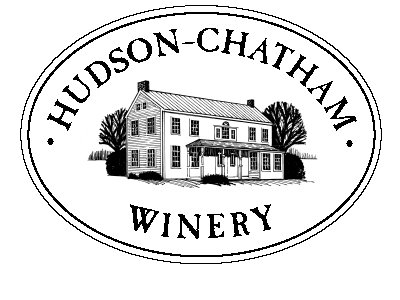Here we were. We had just plunked down a lot of money on a old house and farm that needed work, and here we were looking at adding to that debt and to that responsibility.

The plants in and of themselves are not terribly expensive: three to ten dollars apiece. But you’re not buying a dozen or so. We had calculated that we would be spending about $3,000 just on the rootstock, and that was only for 2.5 to 3 acres. And we were unsure how much more added cost would be mounted on top of that. I was about to find out.
Several of the presenters were from the Hudson Valley Grape and Wine Growers Association, some were Cornell University Extension experts, and some were experienced grape growing veterans.
One of my favorites was a man named John Bruno, who grew Pinot Noir grapes for his winery Oak Summit Vineyard. A former restauranteur from New York, he cut a dashing figure with a fitted cashmere sportscoat, tie, and coordinated pocket square, and well-groomed beard. He was an old-world gentleman, and he was extremely well spoken. He had a gravelly but distinct voice and a wicked sense of humor.
"Farming is very easy. First, you find yourself a good farmer," he said, chewing on his beard. "Then you have him carve you some very nice, neat rows spread down your field. Then I want you to line those rows with $100 bills end to end, like dominoes, and then I want you to light those babies up with a match. That’s what farming is."
We all laughed. And then he told us of his tale of woe. He had not been a farmer previously. And when he bought his land, he knew all he wanted to do was to create a vineyard.

John Bruno of Oak Summit Vineyard
Then he had to have his soil ripped. Ripping is when they use a giant comb-like machine that rips up the hard earth two to three feet beneath the surface. Hard soil is bad for vines. It is hard-packed dirt and sediment that creates a barrier. Firstly, that barrier prevents the vines from digging deep into the soil for nutrients and water. Secondly, the hardsoil won’t let water pass through, and so your vines’ roots will sit in water. It tends to make very poor grapes, and surprisingly tends to ruin the root’s system, slowly killing the plant.

Steven McKay fromCornell Cooperative Extension
This was just the beginning of what I called our "Scared Grape" session. Beginning in the 1980s, a small number of maximum security prisons created programs where habitual juvenile offenders got to spend a day in a maximum security prison to see where their lives were headed. They were assigned to inmates who were serving life sentences. The idea was to scare the juveniles into going straight, thus avoiding the perils of everyday life behind bars. I always thought the program seemed a valuable one.Dominique and I realized this seminar was designed to do two things: educate passionate grape lovers who could not be stopped from burying their money in the earth and to ward off smarter people, who would alternately realize that it would be easier and more pleasurable, as well as more fiscally responsible, to buy some expensive bottles of wine and drink them at their own leisure.

Because my head is as hard as the rock in our fields, I was undeterred. It was like Charleton Heston warning Yul Brynner in The Ten Commandments. Yul laughed in Charleton's face. Call me Yul.
Each speaker came out and warned us against the coming plagues—lack of irrigation during early growing periods through droughts; the onset of a dozen hideous plant diseases; swarms of Japanese beetles and other ravenous and harmful insects; the oncoming ground assault by field mice, ground hogs, moles, and deer, and the coordinated air campaign of birds of various shapes and sizes.
And like soldiers at the Alamo, because this was our chosen profession, we would have to hold the fort against this horde of maladies and poachers, armed with little more than sprayers and a watchful eye.
There was little to no good news at this event. But there was plenty of gallows humor and tons of good information for beginners. Michael Migliore, the President President of the Hudson Valley Wine & Grape Association, Steve McKay of the Cornell Cooperative Extension, and Steve Osborn of Stoutridge Vineyards were all great in downloading real information.

Unfortunately for me, the seminar had the desired effect on Dominique. As we drove home to New Jersey, two little suburbanites in our bronze Volvo, Dominique sat with a look of terror stretched across her face. She was in shock.
How would we do this? Should we rethink this? How were we going to accomplish all this? How would we afford it? Who had the time to do all this? We’d never be able to go away again. We would have to move to Hudson immediately. Could we sell the house in Hudson? It wasn’t too late to back out.
I reminded her of Sal & Sara of Turdo Vineyards, in Cape May. We had met them and they had a little five acre plot, and they commuted from northen New Jersey to Cape May every weekend with their sons and dogs, until they had ccomplished their dream.The have a beautiful home and make great wine. But it took work. And I told her it all took time. That it all wouldn’t happen overnight. I told her that this seminar was all exaggeration to make a point.
In other words, I lied.
I calmed her down. And when we got home, I opened up a bottle of one of our best reds, after the boys were put to bed.
We tasted the wine.
"Won’t it be great. Some day this delicious wine we’re drinking—it will be ours. Imagine how much better it will taste, when it will be one that we make ourselves?" She looked at me, rolled her eyes, and snorted.
"Just pour me some more wine and shut up," she said, and I knew I had made it through Scared Grape.
The first time we saw a tractor on the fields, we cheered. You might have thought we’d struck oil. We were eating breakfast when my wife said, "There’s someone out in the fields," with the lilt of a question in her voice.
We all ran out onto the frost-covered back steps, the boys in their pajamas, my wife in her nightie, and I in a t-shirt and a pair of boxers.
"It’s a tractor!" the boys exclaimed.
We could not have been happier, as a big green tractor kicked up a traveling dust storm. A bearded man in an enclosed tractor, whom we did not know, was brush scrubbing our fields.





